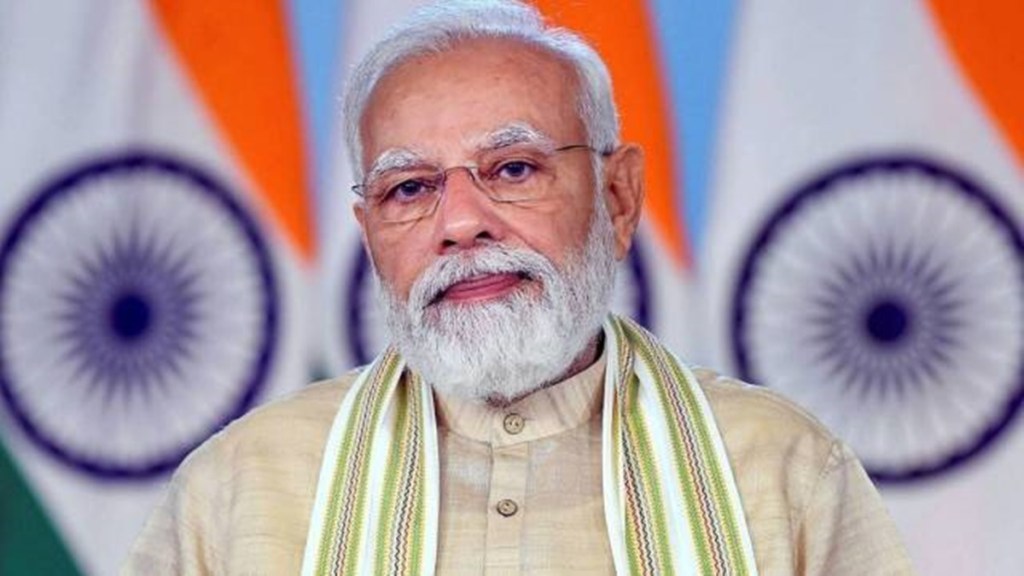This week marks the completion of Narendra Modi’s ninth year as Prime Minister. And, yet the Congress Party continues to behave as if he is a usurper. How else to explain the churlish and childish protest it has led against the new Parliament building. When this grandiose project was announced I was among those who thought it was a waste of public money at a time when public money was desperately needed to combat Covid, but now that it is ready, the protest by Opposition leaders was unwise and reflected poorly on them rather than the Prime Minister. What the Congress Party needs to explain is how that golden sceptre ended up in the Anand Bhawan Museum as a personal artefact of Jawaharlal Nehru.
There is little else to say about this. So let me return to examining Modi’s nine years in office. There is much that he has achieved and much that he has damaged. The achievements first. Never in all the years I have been a journalist have I seen so much infrastructure built so quickly. It is not just the new airports, ports and highways that have given Modi the highest approval ratings of any world leader but the changes that he has brought about in rural India. Congress leaders who consider him a usurper like to bang on about how all that he has achieved is to run more efficiently the social welfare schemes that they devised. This is not entirely true.
Also read: Fifth column by Tavleen Singh: Karnataka sends a clear message
In decades of Congress rule, the expensive, unwieldy, and leaky welfare schemes that were devised seemed only to provide scraps from the high table to people who accepted that they would always be poor. Modi has redesigned these schemes to give people the tools to escape poverty and aspire to living a better life. He should have urged his chief ministers to build better schools and healthcare facilities but there is no question that toilets, gas cylinders, reliable electricity and improved access to clean water have changed the quality of rural life. There is no question that the Jan Dhan accounts and Modi’s emphasis on digitisation have reduced the leakages in government welfare programmes.
In my opinion the abrogation of Article 370 is one of the bravest and best things Modi has done. The special status enshrined in this article served mostly to give Kashmiris, and Pakistanis, the false impression that this state was not truly a part of India and that one day its ‘azaadi’ would be negotiated. It was never going to happen. But now it is time to restore full statehood and ask Ladakhis in a referendum if they want Ladakh to remain a separate entity.
Now for the damage done in the past nine years. I believe it is time for Modi to acknowledge that the belligerent Hindutva that has spread on his watch has damaged the tenets of the Sanatan Dharma and not just the status of Indian Muslims. We should be proud of a religious tradition that welcomes questions and discourages uniformity, ironclad rules, and silly ideas like blasphemy. Hindutva as it has been practiced in the past nine years demands uniformity and condones the lynching of Muslims in the name of saving cows. Hindus and Muslims have moved further away from each other than ever. And hate speech and violent religiosity have become the norm.
In addition, serious damage has been done to India’s credentials as a liberal democracy because all criticism of government policy is viewed as anti-national. Journalists who have resisted becoming cheerleaders and sycophants have been punished. Often brutally. And India’s position in international indices of democracy, religious rights, and press freedom continue to fall. If our fellow democracies are not making too much noise about this, it is because India’s geostrategic position has become very important for the containment of China.
Also read: Fifth column by Tavleen Singh: Bad men and bad choices
The question really is why Modi needs to be so sensitive to criticism when his personal stature in the world is very high and his popularity at home has gone from strength to strength. The BJP may have lost Karnataka but there are no signs yet that it will lose the general election next year. This is not because of the party but because of Modi. So, perhaps it is time for him to rebuild his tattered relationship with the media. If it is tattered, it is because the only journalists who have access to the Prime Minister are cheerleaders. They tell him only what he wants to hear. Modi should remember what Indira Gandhi said at the end of the Emergency. When asked what she considered her biggest mistake, she replied that she believed that press censorship was a bad mistake because she stopped getting real feedback.
When political leaders stop listening to critics, they harm themselves more than anyone else. It is dissenting voices that are the strength of democracy not sycophants, cheerleaders, and minions. When Modi finds time, he should look around and see if he has not encircled himself by exactly this sort of person. One quick glance will show that there is nobody in his inner or outer circle who would dare offer a dissenting opinion. In the ‘mother of democracy’ this is unhealthy and dangerous, and the damage done to India could be irreparable. Meanwhile, our Opposition leaders should examine if refusal to attend the inaugural of the new Parliament was not a foolish mistake.

